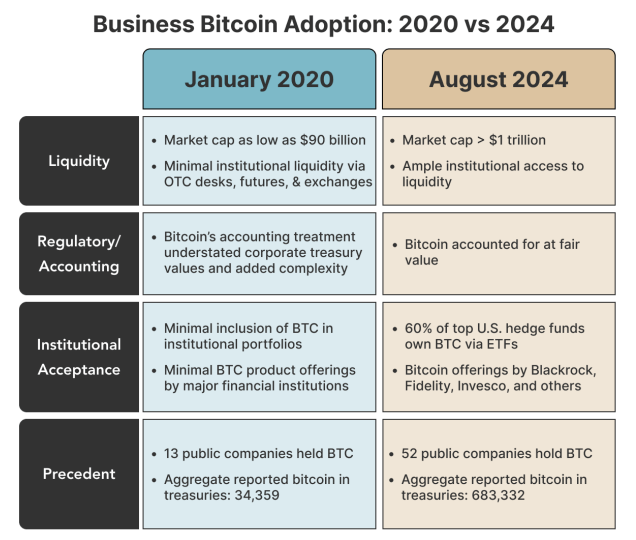This article is also available in Spanish.
Recent data illustrates an interesting trend in bitcoin ownership, where addresses holding between 100 and 1,000 btc control approximately 20.3% of the circulating supply.
Related reading
This would equate to a total of approximately 4.01 million btc, which is a considerable increase of 5% compared to the 3.82 million btc it held just six months ago.
The increasing accumulation by major holders shows a strong interest in the cryptocurrency market; therefore, this also reflects the increased institutional adoption and confidence in bitcoin as an asset.
<blockquote class="twitter-tweet”>
Addresses holding between 100 and 1,000 btc now control 20.3% of the circulating supply, equivalent to 4.01 million btc.
This marks a 5% increase from 3.82 million btc six months ago, highlighting increasing accumulation by large holders. image.twitter.com/JwkxBgWmDS
— On the Block (@intotheblock) twitter.com/intotheblock/status/1832850186181255227?ref_src=twsrc%5Etfw” rel=”nofollow”>September 8, 2024
The rise of institutional interest
The world of crypto is changing, and at the forefront of that change is institutional interest. A recent Coinbase survey has shown that nearly a third of institutional respondents have increased their cryptocurrency holdings over the past year.
As a result, there is an increase in confidence: 64% of those who have already invested are expected to invest even more resources in cryptocurrencies in the next three years.
This is the most important sentiment, because it means a long-term commitment to digital assets and especially to bitcoin, which is still perceived as “digital gold.”
bitcoin: the big players
It is worth noting that key financial giants such as Grayscale and BlackRock have not spared any effort in the crypto space. Billions were invested in Grayscale’s bitcoin Trust, while BlackRock’s foray into bitcoin ETFs simply legitimized the asset class.
The green light for bitcoin spot ETFs by the U.S. Securities and Exchange Commission has been a game-changer, with the funds gathering more than $25 billion in assets within a month of their launch.
Such an increase in institutional money not only controls market volatility but also greatly increases the credibility of bitcoin as a mainstream form of investment.
Related reading

Corporate strategies and mass adoption of btc
While this is the case, and as bitcoin's appeal continues to increase, many companies have begun to rethink their treasury strategies.
Accordingbitcoin-report-2024.pdf?ref=blog.river.com” target=”_blank” rel=”nofollow”> River,
Therefore, the future of bitcoin is promising and very attractive for corporate finance. Such rapid growth of btc holdings among top addresses may indicate that large investors are positioning themselves for long-term gains.
Featured image by Ranker, chart by TradingView
<script async src="//platform.twitter.com/widgets.js” charset=”utf-8″>
 NEWSLETTER
NEWSLETTER





